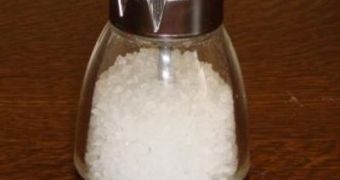While studying unsuspecting mice and rats, researchers at the University of Iowa (UI) have discovered that the rodents seem to not care about activities that they would have otherwise enjoyed anymore, when they have a low concentration of sodium chloride (salt) in their bodies. This has led the team to believe that a lack of salt may be one of the most common symptoms of depression. Indeed, it may be the case that obese people who consume a lot of it are usually more sociable and happy than individuals who eat less salty and dive in healthier foods.
“Things that normally would be pleasurable for rats didn't elicit the same degree of relish, which leads us to believe that a salt deficit and the craving associated with it can induce one of the key symptoms associated with depression,” Kim Johnson, the psychologists who has conducted the UI team, explains. Both mice and rats shied away from eating a sugary mix, or even pressing on a small metal bar (which triggered a pleasure sensation in their tiny brains), if they had eaten insufficient amounts of salt.
“Most of our biological systems require sodium to function properly, but as a species that didn't have ready access to it, our kidneys evolved to become salt misers. This suggests that salt need and cravings may be linked to the same brain pathways as those related to drug addiction and abuse,” Johnson, who published a paper detailing the research in the July issue of the journal Physiology & Behavior, adds. UI graduate students Michael J. Morris and Elisa S. Na have also contributed to the study.
In the past, the ancestors of the humanoids evolved from ocean beasts, which lived in environments very rich in salt. With time and evolution, the former moved inside Africa, where the first primates developed and began to rely on a vegetarian diet to survive. Intense heat robbed sodium from the body, and so our reliance on the stuff might be of evolutionary origin. As soon as humans discovered how to mine it, its use spread throughout the world and it's still diffused today.
As such, following this line of thought, it stands to reason that depriving the body of a substance it has become accustomed to may trigger depression, in very much the same way stripping an addict of the object of their addiction will set off seizures. However, rather than consuming no salt at all, as some may feel inclined to do, individuals should only ingest about 2 to 4 grams of the stuff per day, as opposed to the 10 grams they do, on average, nowadays.

 14 DAY TRIAL //
14 DAY TRIAL //